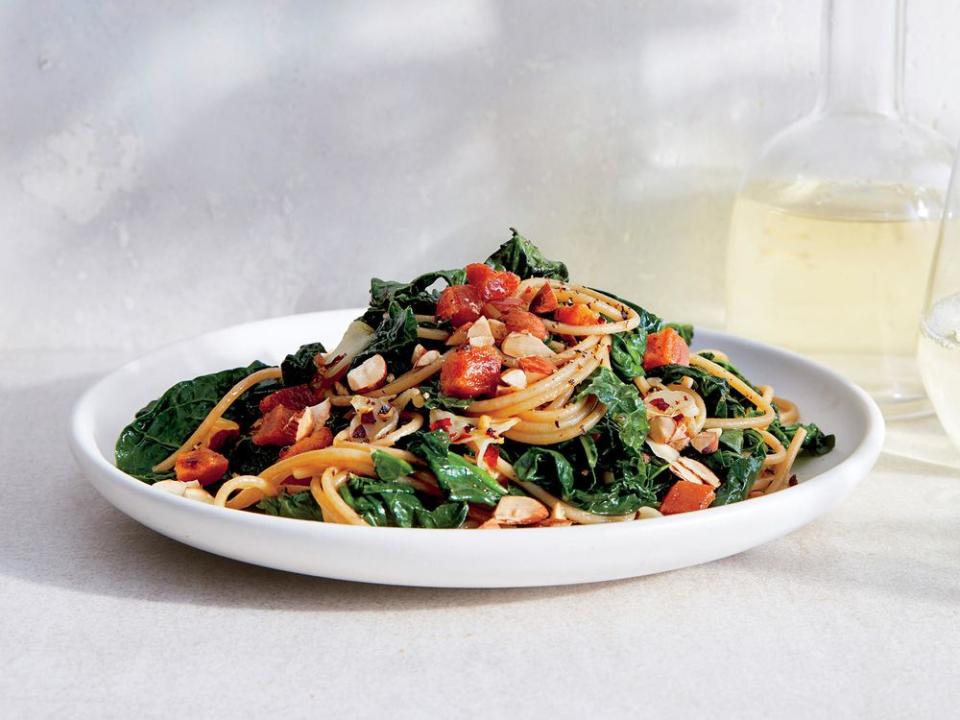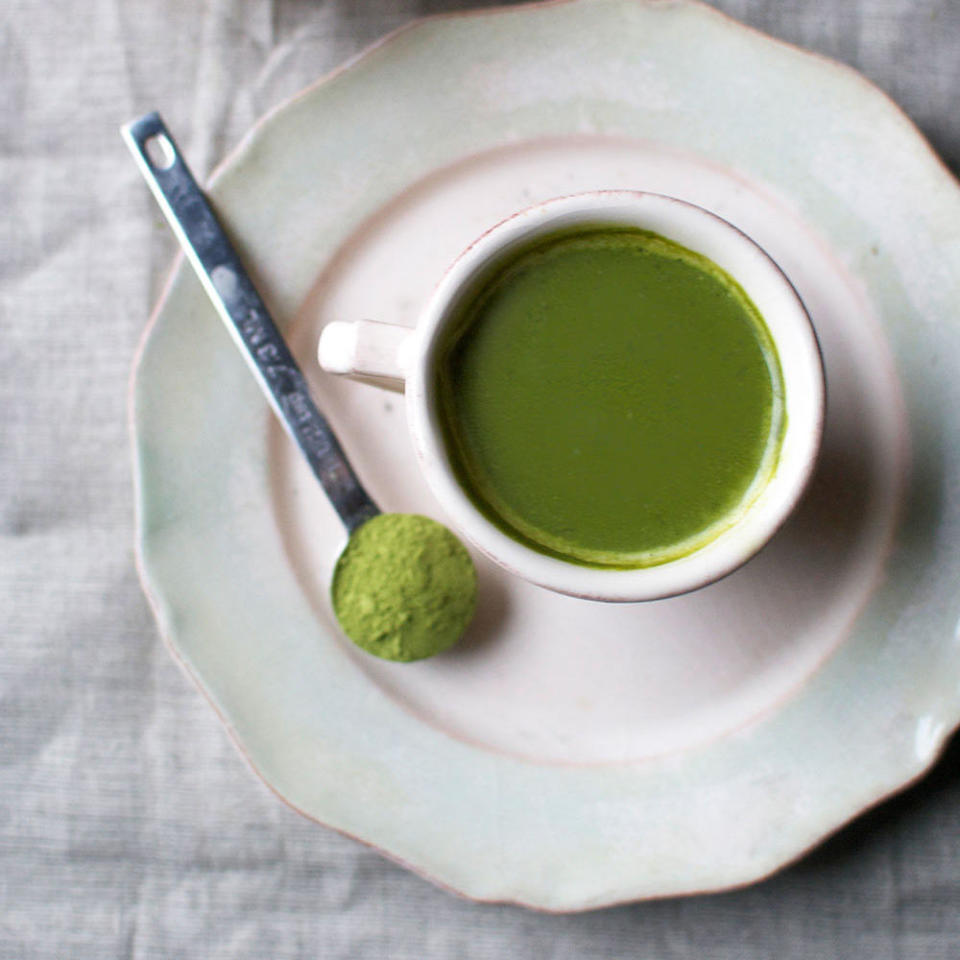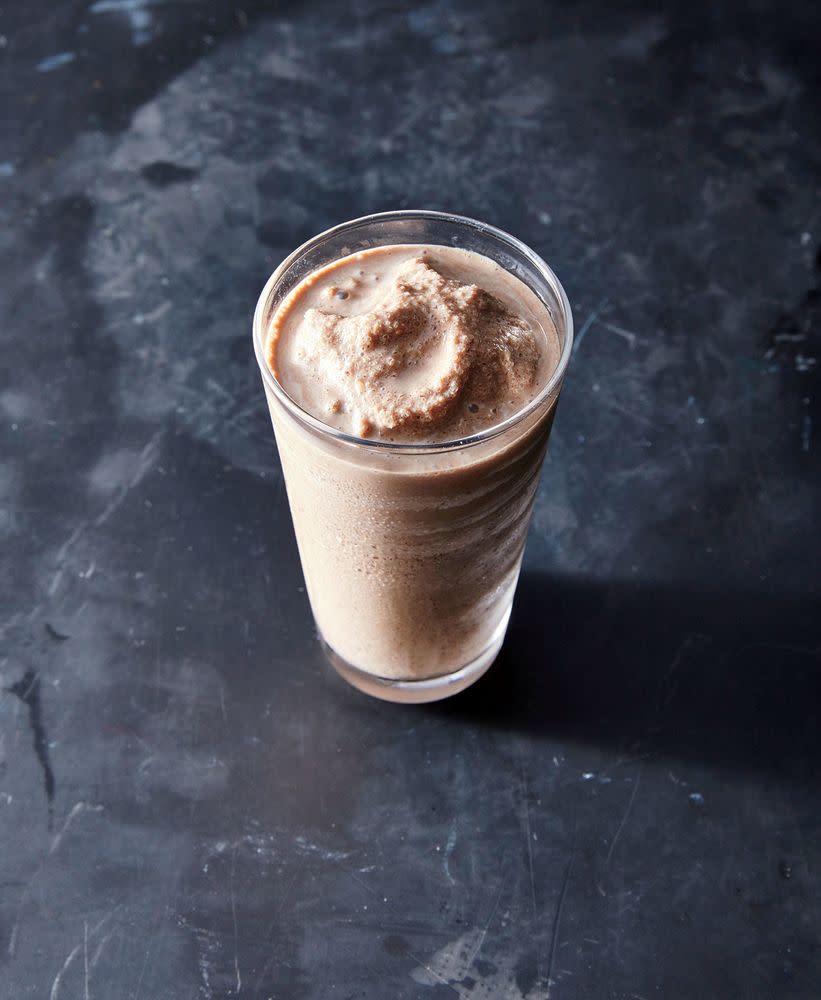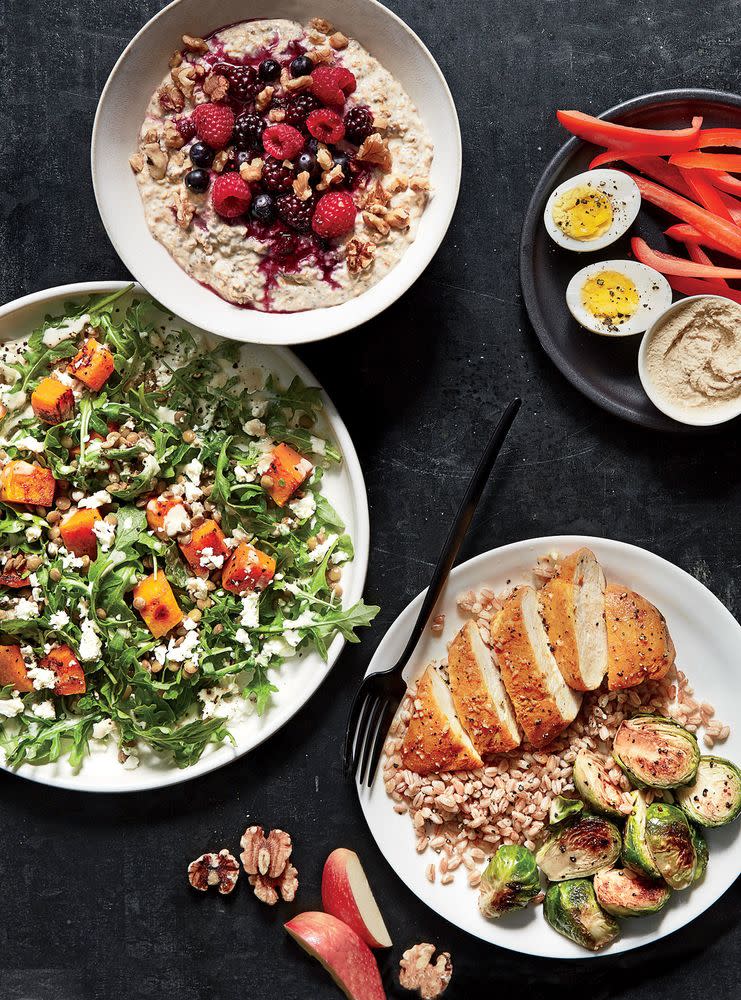The 12 Best Foods to Eat During Menopause
Menopause is often characterized by hot flashes, weight gain, irritability, decreased bone health, and other hormonal changes. It occurs 12 months after a woman’s final period—and while it’s a natural transition, it’s not always the easiest. Estrogen levels begin to decline during this time, often causing unwanted weight gain, higher cholesterol levels, and an increased risk for several chronic diseases.
However, studies suggest that eating certain foods like oatmeal and leafy greens may help relieve or prevent symptoms of menopause. Fill your diet with these 12 nutrient-packed foods to help make the transition easier.
Salmon

Salmon is rich in both vitamin D and omega-3 fats, two nutrients that are even more essential during menopause. While more research needs to be done, omega 3 fatty acids are linked to reducing night sweats and breast cancer risk. One study shows omega 3s are beneficial as women ease out of menopause as well.
Vitamin D is essential for healthy bones, cancer prevention, and the prevention of several other major chronic conditions—all of which can be impacted by menopause. Vitamin D is also associated with a reduced risk of early menopause.
View Recipe: Easy Sesame-Hoisin Salmon
Broccoli

Cruciferous veggies could be seriously beneficial for menopausal women to add to their diet. One study found broccoli in particular has a positive impact on estrogen levels—increasing the estrogen responsible for reducing breast cancer risk and lowering the estrogen responsible for increasing one’s risk. Broccoli is also full of calcium for strong bones and fiber to prevent bloating and weight gain.
View Recipe: Steamed Broccoli With Peanut Sauce
Eggs

Eggs are vitamin D-rich and full of iron, both nutrients that women often lack. Eggs are also a great protein source for menopausal women—they have been shown to reduce cholesterol levels, heart disease risk, and obesity.
View Recipe: White Bean and Vegetable Bowls With Frizzled Eggs
Berries

Berries are not only a great source of natural sweetness, but they help fight fat, reduce inflammation, and reduce heart disease risk. Add them to your morning oatmeal or toss in a few with nuts for a heart-healthy snack to keep skin healthy and glowing throughout this transition.
View Recipe: Berry Green Smoothie
Whole Grains

Yes, whole grains do in fact fit the “good carbs” category—and for so many reasons! Whole grains are an excellent source of heart-healthy soluble fiber, plant protein, and some B vitamins responsible for energy and metabolism regulation. Whole grain consumption is associated with a reduced risk of cancer, heart disease, diabetes and death.
View Recipe: Zesty Kale and Sweet Potato Bowl
Yogurt

Dairy products are a great menopause diet food as they are rich in calcium, vitamin D, and protein and can help improve sleep quality. One study of peri- and post-menopausal women found calcium and vitamin D rich foods—such as yogurt—reduced early menopause risk by 17 percent and helped reduce some symptoms of menopause. Plus, the probiotics in yogurt provide a nice gut health boost for better digestion, immunity, and skin.
View Recipe: Blueberry-Lavender Yogurt Pops
Leafy Greens

There are a million reasons to eat leafy greens—especially if you’re experiencing menopause. Cruciferous veggie consumption is linked to longevity and is a great way to pack in several hard-to-obtain nutrients like calcium, magnesium, potassium, B vitamins, and fiber. All of these nutrients are essential for health in menopause as calcium and potassium keep bones and muscles strong, B vitamins and fiber help prevent weight gain, and magnesium and B vitamins regulate our energy levels and moods.
View Recipe: Garden Greens Pasta With Almonds and Pancetta
Interested in learning more about women’s health?
Chicken

Protein is essential for keeping our bodies strong, and the decline of estrogen during menopause can lead to a reduction in muscle mass and bone strength. Fighting back with a lean protein like chicken is a healthy way to boost your protein intake without consuming too much saturated fat—which is linked to an increased risk for heart conditions, diabetes, high cholesterol, and obesity when consumed in excess.
View Recipe: Charred Lemon Chicken Piccata
Green Tea

Green tea is often touted as a weight loss tool—but it is so much more than that. Not only is replacing other sugary or caffeinated beverages with green tea a better choice in general, it comes with a range of health benefits. Green tea promotes longevity, heart health, and reduces the risk of several cancers and inflammation.
Matcha, a high-quality, finely ground green tea powder, is also a great option. Matcha is the only form of tea where the leaves itself are ingested, making it an even more powerful source of antioxidants than regular green tea.
View Recipe: Matcha Coconut Latte
Soy

While soy’s nutritional value is as hotly debated as eggs’, soy has proven to be a valuable asset for menopausal women. Soy is a phytoestrogen—plant-based compounds acting as weak estrogens in the body—which are linked to reduced menopause symptoms and healthier bones. Breast Cancer Prevention Partners lists soy as effective for reducing breast cancer risk, recurrence, and tumor cell growth. Avoid highly processed forms of soy and reach for edamame, tofu, tempeh, and soy-based dairy alternatives instead.
View Recipe: Brussels Sprouts and Crispy Tempeh With Soy Dressing
Flax

Flax is a power-packed little seed. It’s full of omega-3s, fiber, phytoestrogens, and B vitamins. One small study of 140 women found decreased menopause symptoms and improved quality of life after 3 months of flaxseed consumption. Another study found links between flaxseed consumption and a reduction in hot flashes.
View Recipe: Mocha-Flax Smoothie
Oatmeal

There’s a reason why oatmeal is the breakfast of champions for so many people. Not only are oats an affordable health food, but they can also prevent diabetes, high cholesterol, weight gain, inflammation, and constipation.
Oatmeal is another healthy carb that can help keep energy levels steady during menopause. Plus, oatmeal is the perfect vehicle for incorporating a host of other menopause-friendly foods like berries, flax, and yogurt.
View Recipe: Berry-Banana Overnight Oats
Nutrition source: USDA Food Composition Database


